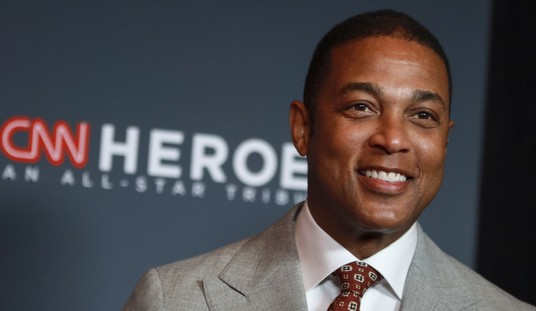Former Hollywood producer was sentenced today to 23 years in jail following his conviction for sexual assault in New York.
Harvey Weinstein, the once-powerful and internationally acclaimed Hollywood producer, was sentenced to 23 years in a New York state prison Wednesday following a conviction stemming from sexual-assault allegations that sparked the #MeToo movement.
In an exclusive interview with Bill Hemmer on his Fox News program this afternoon, Weinstein’s lead attorney discussed the sentence, the appeal, and strategy for handling the other trials pending in California. Here is some of that Q&A:
Hemmer: Former Hollywood producer Harvey Weinstein sentenced to 23 years in jail after his conviction for rape and assault. He could be behind bars for if it stands until he’s 90 years old. His lead attorney is Donna Rotunno and is with me in studio today. You called this obscene … how come?
Rotunno: I did. I think the number is just too large … I think it’s too large for the evidence that we heard. I think it’s too large for the charges that the jury found him guilty of, and I think the number is just too bid.
Me: Of course, she would think that; she’s a defense attorney. I would surmise that the victims felt somewhat differently – at least vindicated if not completely satisfied with the sentencing.
Hemmer: What should the number be?
Rotunno: Well, the minimum was five years; the maximum if you ran them consecutively was 29 years. And I think that Harvey deserved the minimum sentence. He’s going to be 68 years old. He’s never been incarcerated. He’s never been arrested. I don’t even know if he had any traffic violations in his background. I think that in our society today [where] we talk about prison reform and bail reform, to then throw the book at him is a little counter-productive.
Me: He “deserve the minimum sentence”? I don’t think so. The things she listed are not mitigating circumstances given the severity of the crimes committed. And “counter-productive”? For whom? Certainly not for the victims, who suffered for years without any hope of justice being served.
Hemmer: That said, at court today, you said the judge caved. For what?
Rotunno: I think he did cave. I think he caved to the pressure … the movement, the pressure, the sheer number that we continue to hear about, and I think that from the beginning of this case that he [the judge] had his mind made up, and that’s what he was going to do no matter what we said.
Me: The judge “caved”? I guess she is used to seeing the high-and-mighty get off with a slap on the wrist. It’s about time one of the predator glitterati received an appropriately stiff sentence for his crimes. She just insulted the judge, too, by claiming that he was biased from the beginning. If she really thought that, she would have produced evidence of that, not speculation, and pressed for a mistrial.
Hemmer: In your view though, define fairness in a case like this where you have accusations from more than 80 women.
Rotunno: I think fairness in a case like this is looking at the evidence presented as it’s presented in a criminal courtroom, and of course, a lot of the other allegations are not criminal allegations. They’re civil allegations. A lot of other allegations don’t pass the statute of limitations test, which is of course something the legal system needs to take into consideration. There’s a reason for the statute of limitations.
Me: That’s arm-waving. He was convicted two counts that could have led to 29 years in prison. And there are those California cases pending, too, that cannot be ignored.
Hemmer: What did Harvey Weinstein say after this?
Rotunno: I never like to talk about what my clients say to me. But you could have seen him in court today. He was I think very shaken. I think none of us expected a number that big. Realistically I don’t think [the judge] was going to give him the minimum even though I thought he should, but that number surprised all of us.
Me: I suspect that he thought he’d get the minimum sentence since he’s essentially been enabled for decades. It’s what all the glitterati expect.
Hemmer: In the meantime, you’re gonna appeal, right?
Rotunno: Absolutely.
Hemmer: And that will happen in the summer?
Rotunno: It should. I would think that by July we should have a ruling.
Hemmer: July is several months away. In the meantime, you’ve got four cases in California. What will be your pursuit regarding those cases?
Rotunno: I am not going to handle the California cases myself. He has a California team that will handle those cases. We of course will be involved to consult … to help in any way that we can. Harvey wants us to stay involved and do what we can for him. I think given the sentence today, I don’t know how much California really matters. I think it becomes ceremonial. Obviously, if we’re successful on appeal, it may make a bigger difference. But the number is so large, and with Harvey’s health, I don’t see he leaves (garbled).
Me: Of course California matters! Especially to the victims! This isn’t about horse-trading to let Weinstein off the hook with a lighter sentence; this is crime, punishment, and justice for the victims.
Hemmer: Would you consider or take a deal if you plead guilty in California? That would enable him to serve fewer years, or even to serve the sentences concurrently. Would you take that deal?
Rotunno: I think that would be up to Harvey, not me. I think that even at this juncture, if they offered him a sentence that was concurrent, again, I think with the number that has been handed down to him today, he won’t see the light of day, especially given his health. So I don’t know if that’s even a practical or necessary conversation to have.
Me: Call me a skeptic about his “health issues.” I don’t recall him using a walker before the trial started.
Hemmer: The jury did not convict him for the most serious crimes … charges … which could have been life in prison. Does that hurt your argument upon appeal when you consider that the jury threw those out?
Rotunno: I think that what it does show, though, is that even though the jury rejected the most serious claims, the judge essentially gave him what amounts to a life sentence anyway. So I think the argument is really that the sentence doesn’t fit what the jury came back with. And then looking at the jury’s decision in light of the evidence, and how the evidence came across, is that they got that verdict really correct.
Me: Let the punishment fit the crime. The sentence was within guidelines, and that’s all that counts.
Hemmer: The #MeToo movement is alive and well. Do you believe that that had a role in today’s decision?
Rotunno: I do. I don’t know how it couldn’t. I don’t know how the movement … I don’t know how the media coverage … I don’t know how two years of writing and reporting about this prior to one piece of evidence coming out in court … I think it all made a difference.
End of the Q&A. On that last answer, Rotunno had to tip-toe a bit, as she is already afoul of the #MeToo movement for representing Weinstein in the first place. I wonder what she really thinks about Weinstein? Despite her best efforts, the #MeToo crowd got a big scalp.
The end.














Join the conversation as a VIP Member